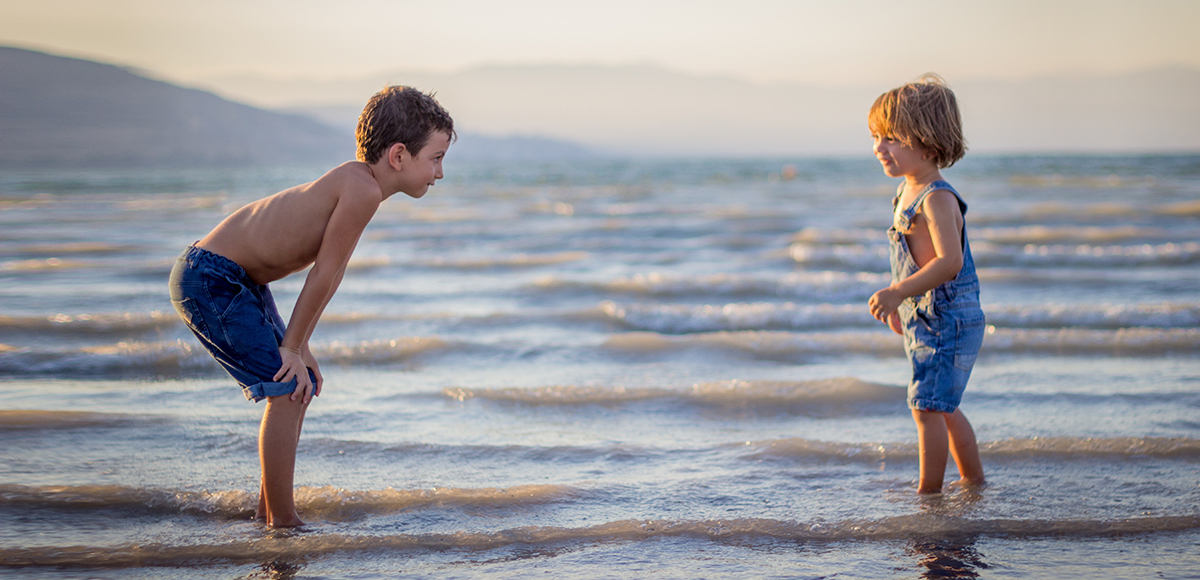Safety - my charm on water
In the Northern Hemisphere of the Earth, calendar summer began on June 1. Here it is especially much-awaited. Start of the warm weather and appearance of the sun invite for meetings and walks outdoors. And children's screams and laughter coming from all city playgrounds and summer camps evoke vivid associations with this season and symbolize life, joy and energy.
For almost a hundred years, June 1 has been celebrated as International Children's Day. The decision on this matter was made in 1925 at the World Conference in Geneva, dedicated to the welfare of children. Then the UN supported this initiative and declared the protection of the rights, life and health of children one of the priorities of its activities.
But still, why is it on June 1? There is a superordinary legend that the "kid" conference in Geneva was held on the same day as the celebration of the Chinese Dragon Boat Festival Duan-wu, which was hosted by the Consul General of China in San Francisco for a group of Chinese orphans. So, June 1 as Children's Day is firmly entrenched in history thanks to these remarkable events.
Duan Wu is one of the three most important holidays in China and was inscribed on the UNESCO Intangible Cultural Heritage List. This day is considered the beginning of summer in China. This is a day of remembrance of the famous ancient Chinese poet Qu Yuan, who, out of grief and indignation after the capture of his homeland by enemy troops, drowned himself in the river. Then the locals gathered on the banks of the river, and the fishermen tried to find the poet in order to drive the "Water dragon" away from the poet's body. Since then, on Qu Yuan Memorial Day, the Chinese have held rowing regatta on boats decorated with dragons.
But the "Water Dragon" does not sleep, and deep waters are fraught with many mysteries and dangers. Children are the most persistent explorers of everything unknown. Sometimes their thoughtless courage and desire for attention-getting deeds lead to unpleasant and even tragic consequences.
The All-Russian Water Rescue Society (VOSVOD) cites that most often children get drown due to the inability to swim and the lack of basic water behavior skills, adolescents are rather poorly oriented in water safety measures too.
According to EMERCOM of Russia, on average, about 300 children die in water bodies in Russia annually. According to the Royal Life Saving Society, children under the age of 4 are at the greatest risk of drowning. In the second risk zone, there are children from 5 to 14 years old. The study says that the main reasons for these hazards are also the inability of children to swim and poor adult supervision.
The world around the child can become a more interesting and safer place through education and learning a set of skills for safe behavior on the water. And it needs to be developed with practice. The rules of water safety should become as natural to the child as the rule of fastening seat belts in a car, not talking to strangers, crossing through a subway only at a green light.
The World Health Organization, in its description of measures to prevent child hazards on the water, also notes the need to teach school-age children basic swimming, water safety and safe rescue skills.
VOSVOD warns that every resident of the city and the countryside who can swim should know the features and dangerous places of the reservoirs in which they swim, and prohibits swimming in irrigation and navigable canals, unfamiliar and unequipped places. Such places include hydrotechnical facilities of power plants.
Enel Russia power engineers remind that swimming and boating near the water infrastructure of power plants is prohibited, as it is life-threatening. In places of discharge channels and abstraction intakes, there is a high water flow rate and strong whirlpools. The slopes of the discharge channels are cladded with concrete slabs, which over time become overgrown with moss and become slippery - once in the water, it is extremely difficult and almost impossible to get ashore.
Knowledge of the rules of safety on the water saves lives, and the ability to swim is a skill that stays with a person for life, helps to develop coordination, become stronger and more hardy, but most importantly, happier.
Protect your children - teach them to swim and teach them about water safety. Let them not be afraid of the "Water Dragon".
